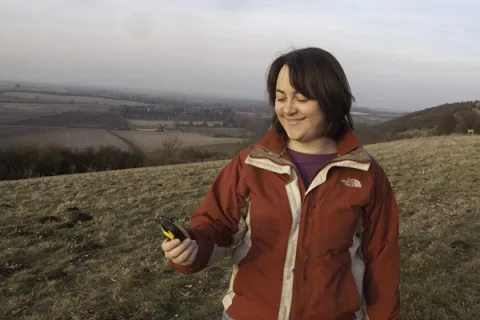About the project
Explore how private gardens can facilitate climate resilience. Taking a mixed-methods approach – combining spatial modelling, interviews and participatory methods – this project investigates how climate change, socio-demographic factors, and people’s willingness or resistance to change will shape the fundamental capacity of gardens to act as a cornerstone of urban climate resilience.
Private domestic gardens offer a wide range of benefits, including microclimate regulation, support for biodiversity, and mental health benefits. However, climate change threatens the sustainability of these spaces. To ensure future climate resilience, private gardens and gardeners will need to adapt to changing conditions.
To ensure that private gardens continue to contribute to urban climate resilience, it is essential to understand how they can adapt to changing environmental conditions. This includes examining current garden characteristics, identifying who engages in gardening, exploring how gardening practices may need to adapt to new climate conditions, and, critically, understanding gardeners’ willingness (or resistance) to undertake these changes.
The project takes a mixed-methods approach – combining spatial analysis (e.g. mapping climate equivalent cities) with participatory methods (e.g., garden visits, participants’ photography and drawings) and statistical modelling (e.g. multi level [mixed-effects] models).
The project will consider how socio-demographic factors that relate to garden practices and approaches may influence adaptability and wider climate resilience, both now and in the future.
Based in the School of Geography and Environmental Science, the student will join the vibrant Environmental Change and Sustainability research group and benefit from interdisciplinary collaboration through the University’s Sustainability and Resilience Institute.
This research is critical for advancing urban sustainability research and promoting climate-resilient spaces in cities facing rapid environmental change.
The findings will generate evidence-based recommendations for garden design and practices, inform public engagement strategies, and support the development of climate-resilient urban environments through the everyday actions of residents.
Additional technical training or support
National Centre for Research Methods training courses will support the student in the handling on the nationally representative surveys the choose; for example “Finding and accessing data from the UK Data Service” this will support a student with limited experience with handling social data.
Existing taught modules from the School’s existing portfolio will be selected depending on the needs of the successful candidate; for example, GIS modules, or modules focussing on qualitative and quantitative methods.
References
Wittemans, K., Dewaelheyns, V., Teerlinck, J., Heremans, S., Lange, F., Raymaekers, P., Van der Linden, S., Van Valckenborgh, J., Strosse, V., Steen, T. and Somers, B., 2024. From gardens to neighbourhoods: Characterizing the climate adaptation contribution of the garden landscape in Flanders. Urban Forestry & Urban Greening, 102, p.128588.
Felgentreff, E.S., Jakubka, D., Knapp, S. and Bernhardt-Römermann, M., 2025. The garden biodiversity index: A self-assessment tool for evaluating biodiversity in private gardens. Landscape and Urban Planning, 263, p.105449.
Collins, R.M., Smith, D., Ogutu, B.O., Brown, K.A., Eigenbrod, F. and Spake, R., 2023. The relative effects of access to public greenspace and private gardens on mental health. Landscape and Urban Planning, 240, p.104902.


